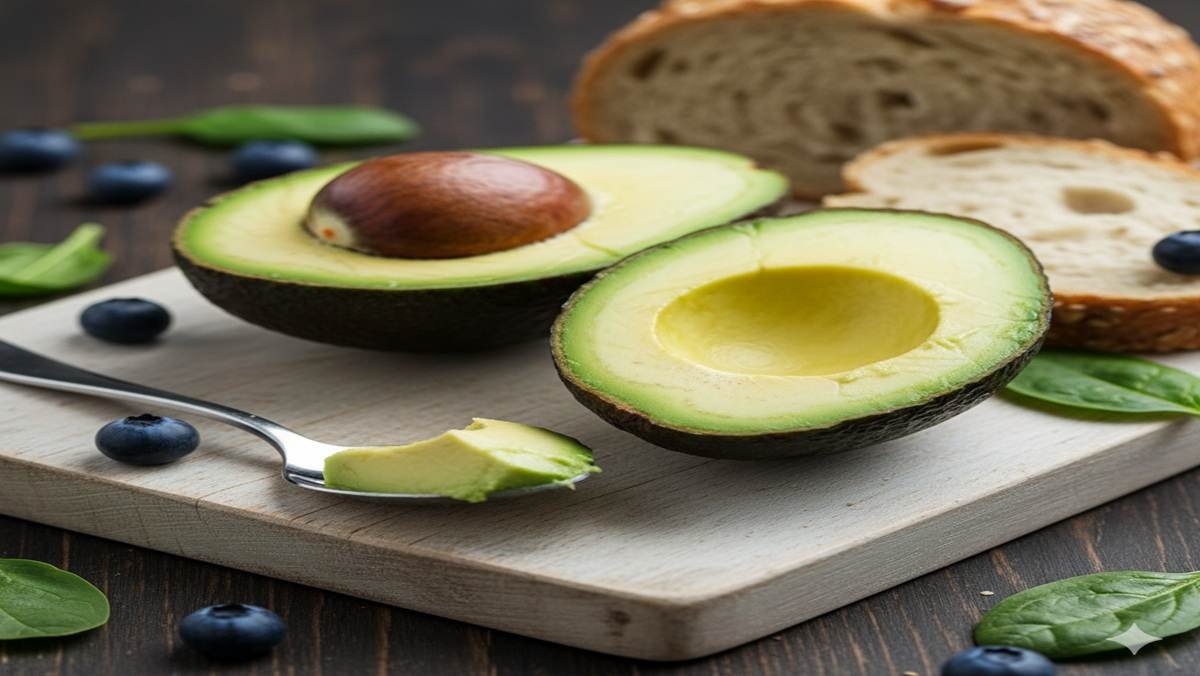Avocados — they’re creamy, delicious, and universally celebrated as one of the healthiest foods on the planet. Packed with good fats, fiber, and essential vitamins, they’ve become a favorite in smoothies, salads, and even on toast. But here’s the twist: while avocados are undeniably nutritious, they might not be as innocent as they seem — especially if you’re taking certain medications.
In fact, experts are sounding the alarm about a surprising health risk that’s been flying under the radar. The very nutrients that make avocados good for you can also interfere with how some drugs work in your body, sometimes with serious consequences.
Let’s take a closer look at what’s being called “The Avocado Paradox” — and how you can enjoy this superfood safely.
🥑 The Hidden Side of a Superfood
We all know avocados are packed with healthy monounsaturated fats, Vitamin K, and potassium — nutrients linked to heart health, glowing skin, and even better digestion. They’re also a great source of energy and can play a big role in weight management (yes, both avocados for weight loss and avocados and weight gain are hot topics).
But here’s where things get tricky: those same nutrients can interact with certain medications, making them less effective or, in some cases, dangerous.
If you’re someone who takes daily prescription meds, it’s worth knowing what these interactions look like — and how to avoid them.
1. The Blood Thinner Battle: When Vitamin K Fights Your Medication
If you’re taking blood thinners like Warfarin (Coumadin), you might want to think twice about how much avocado you eat.
These medications work by limiting the body’s ability to use Vitamin K, which helps your blood clot. It’s a delicate balance — too little Vitamin K, and you could bleed too easily; too much, and your medication may not work at all.
The problem: Avocados naturally contain Vitamin K. While they’re not as rich in it as leafy greens, eating them inconsistently (a lot one day, none the next) can confuse your body’s system and interfere with your medication levels.
The risk: Your blood thinner could become less effective, increasing your chances of blood clots, stroke, or heart attack.
The takeaway: If you’re on Warfarin or similar drugs, don’t cut out Vitamin K completely — just keep your intake consistent. If you love avocados, talk to your doctor or dietitian about how much is safe for you.
2. The Blood Pressure Drop: When Potassium Levels Go Too Far
Avocados are also a powerhouse of potassium, which helps regulate blood pressure. Normally, that’s a good thing — but not if you’re already taking ACE inhibitors or beta-blockers for hypertension.
Here’s what happens: These medications are designed to lower your blood pressure and can increase potassium in your blood. Add potassium-rich foods like avocados into the mix, and your potassium levels can spike too high.
The result: You may experience dangerously low blood pressure (hypotension), leading to dizziness, lightheadedness, or fainting.
It’s especially important for older adults to be careful — as our bodies age, they’re less efficient at regulating blood pressure and potassium balance.
The bottom line: Avocados are heart-healthy, but if you’re on medication for blood pressure, moderation is key.
3. Cholesterol Control and Fat Absorption: A Slowdown You Don’t Want
Avocados are full of good fats and fiber, which slow down digestion. Normally, that’s a great thing — it keeps you full longer and helps with fat loss and blood sugar control.
But if you’re taking statins or other cholesterol-lowering drugs, that slowdown can reduce how efficiently your medication is absorbed. Over time, this could mean your cholesterol levels creep back up — even if you’re taking your meds properly.
Tip: Consistency is everything. If you’re going to eat avocados regularly, do it in moderation and around the same time each day. That way, your doctor can adjust your medication dosage accordingly.
4. The Mood Medicine Mix-Up: Avocados and MAOIs
This one surprises a lot of people. If you’re on MAOIs (Monoamine Oxidase Inhibitors), a type of antidepressant, avocados can pose a rare but serious risk.
Here’s why: when avocados become overripe, they contain higher levels of a compound called tyramine. MAOIs prevent the breakdown of tyramine, which can lead to a dangerous spike in blood pressure — a condition called hypertensive crisis.
It’s uncommon, but not impossible. The best advice? Avoid eating avocados that are overly soft, browned, or past their prime.
🥗 So, Are Avocados Good for You?
Absolutely — for most people. Avocados are one of the most nutrient-dense foods you can eat. They’re packed with healthy fats that support brain and heart function, help with nutrient absorption, and can even assist in weight management.
If you’re trying avocados for weight loss, the key is portion control. They’re high in calories, so even healthy fats can add up fast.
On the flip side, if you’re looking at avocados and weight gain, their healthy fat content can help you build strength in a nutritious way — just keep it balanced with other foods.
🩺 The Takeaway: Talk Before You Toast
Avocados aren’t “bad” for you — but if you’re on certain medications, they’re not as harmless as they seem. What’s healthy for one person might not be safe for another, and that’s the essence of the avocado paradox.
Before you toss another half into your smoothie or spread it thick on toast, have a quick chat with your healthcare provider. A small adjustment in your diet could make a big difference in how well your medication works — and how healthy you feel.
Because when it comes to food and medicine, even superfoods can have a dark side.Avocados — they’re creamy, delicious, and universally celebrated as one of the healthiest foods on the planet. Packed with good fats, fiber, and essential vitamins, they’ve become a favorite in smoothies, salads, and even on toast. But here’s the twist: while avocados are undeniably nutritious, they might not be as innocent as they seem — especially if you’re taking certain medications.
In fact, experts are sounding the alarm about a surprising health risk that’s been flying under the radar. The very nutrients that make avocados good for you can also interfere with how some drugs work in your body, sometimes with serious consequences.
Let’s take a closer look at what’s being called “The Avocado Paradox” — and how you can enjoy this superfood safely.
🥑 The Hidden Side of a Superfood
We all know avocados are packed with healthy monounsaturated fats, Vitamin K, and potassium — nutrients linked to heart health, glowing skin, and even better digestion. They’re also a great source of energy and can play a big role in weight management (yes, both avocados for weight loss and avocados and weight gain are hot topics).
But here’s where things get tricky: those same nutrients can interact with certain medications, making them less effective or, in some cases, dangerous.
If you’re someone who takes daily prescription meds, it’s worth knowing what these interactions look like — and how to avoid them.
1. The Blood Thinner Battle: When Vitamin K Fights Your Medication
If you’re taking blood thinners like Warfarin (Coumadin), you might want to think twice about how much avocado you eat.
These medications work by limiting the body’s ability to use Vitamin K, which helps your blood clot. It’s a delicate balance — too little Vitamin K, and you could bleed too easily; too much, and your medication may not work at all.
The problem: Avocados naturally contain Vitamin K. While they’re not as rich in it as leafy greens, eating them inconsistently (a lot one day, none the next) can confuse your body’s system and interfere with your medication levels.
The risk: Your blood thinner could become less effective, increasing your chances of blood clots, stroke, or heart attack.
The takeaway: If you’re on Warfarin or similar drugs, don’t cut out Vitamin K completely — just keep your intake consistent. If you love avocados, talk to your doctor or dietitian about how much is safe for you.
2. The Blood Pressure Drop: When Potassium Levels Go Too Far
Avocados are also a powerhouse of potassium, which helps regulate blood pressure. Normally, that’s a good thing — but not if you’re already taking ACE inhibitors or beta-blockers for hypertension.
Here’s what happens: These medications are designed to lower your blood pressure and can increase potassium in your blood. Add potassium-rich foods like avocados into the mix, and your potassium levels can spike too high.
The result: You may experience dangerously low blood pressure (hypotension), leading to dizziness, lightheadedness, or fainting.
It’s especially important for older adults to be careful — as our bodies age, they’re less efficient at regulating blood pressure and potassium balance.
The bottom line: Avocados are heart-healthy, but if you’re on medication for blood pressure, moderation is key.
3. Cholesterol Control and Fat Absorption: A Slowdown You Don’t Want
Avocados are full of good fats and fiber, which slow down digestion. Normally, that’s a great thing — it keeps you full longer and helps with fat loss and blood sugar control.
But if you’re taking statins or other cholesterol-lowering drugs, that slowdown can reduce how efficiently your medication is absorbed. Over time, this could mean your cholesterol levels creep back up — even if you’re taking your meds properly.
Tip: Consistency is everything. If you’re going to eat avocados regularly, do it in moderation and around the same time each day. That way, your doctor can adjust your medication dosage accordingly.
4. The Mood Medicine Mix-Up: Avocados and MAOIs
This one surprises a lot of people. If you’re on MAOIs (Monoamine Oxidase Inhibitors), a type of antidepressant, avocados can pose a rare but serious risk.
Here’s why: when avocados become overripe, they contain higher levels of a compound called tyramine. MAOIs prevent the breakdown of tyramine, which can lead to a dangerous spike in blood pressure — a condition called hypertensive crisis.
It’s uncommon, but not impossible. The best advice? Avoid eating avocados that are overly soft, browned, or past their prime.
🥗 So, Are Avocados Good for You?
Absolutely — for most people. Avocados are one of the most nutrient-dense foods you can eat. They’re packed with healthy fats that support brain and heart function, help with nutrient absorption, and can even assist in weight management.
If you’re trying avocados for weight loss, the key is portion control. They’re high in calories, so even healthy fats can add up fast.
On the flip side, if you’re looking at avocados and weight gain, their healthy fat content can help you build strength in a nutritious way — just keep it balanced with other foods.
🩺 The Takeaway: Talk Before You Toast
Avocados aren’t “bad” for you — but if you’re on certain medications, they’re not as harmless as they seem. What’s healthy for one person might not be safe for another, and that’s the essence of the avocado paradox.
Before you toss another half into your smoothie or spread it thick on toast, have a quick chat with your healthcare provider. A small adjustment in your diet could make a big difference in how well your medication works — and how healthy you feel.
Because when it comes to food and medicine, even superfoods can have a dark side.Avocados — they’re creamy, delicious, and universally celebrated as one of the healthiest foods on the planet. Packed with good fats, fiber, and essential vitamins, they’ve become a favorite in smoothies, salads, and even on toast. But here’s the twist: while avocados are undeniably nutritious, they might not be as innocent as they seem — especially if you’re taking certain medications.
In fact, experts are sounding the alarm about a surprising health risk that’s been flying under the radar. The very nutrients that make avocados good for you can also interfere with how some drugs work in your body, sometimes with serious consequences.
Let’s take a closer look at what’s being called “The Avocado Paradox” — and how you can enjoy this superfood safely.
🥑 The Hidden Side of a Superfood
We all know avocados are packed with healthy monounsaturated fats, Vitamin K, and potassium — nutrients linked to heart health, glowing skin, and even better digestion. They’re also a great source of energy and can play a big role in weight management (yes, both avocados for weight loss and avocados and weight gain are hot topics).
But here’s where things get tricky: those same nutrients can interact with certain medications, making them less effective or, in some cases, dangerous.
If you’re someone who takes daily prescription meds, it’s worth knowing what these interactions look like — and how to avoid them.
1. The Blood Thinner Battle: When Vitamin K Fights Your Medication
If you’re taking blood thinners like Warfarin (Coumadin), you might want to think twice about how much avocado you eat.
These medications work by limiting the body’s ability to use Vitamin K, which helps your blood clot. It’s a delicate balance — too little Vitamin K, and you could bleed too easily; too much, and your medication may not work at all.
The problem: Avocados naturally contain Vitamin K. While they’re not as rich in it as leafy greens, eating them inconsistently (a lot one day, none the next) can confuse your body’s system and interfere with your medication levels.
The risk: Your blood thinner could become less effective, increasing your chances of blood clots, stroke, or heart attack.
The takeaway: If you’re on Warfarin or similar drugs, don’t cut out Vitamin K completely — just keep your intake consistent. If you love avocados, talk to your doctor or dietitian about how much is safe for you.
2. The Blood Pressure Drop: When Potassium Levels Go Too Far
Avocados are also a powerhouse of potassium, which helps regulate blood pressure. Normally, that’s a good thing — but not if you’re already taking ACE inhibitors or beta-blockers for hypertension.
Here’s what happens: These medications are designed to lower your blood pressure and can increase potassium in your blood. Add potassium-rich foods like avocados into the mix, and your potassium levels can spike too high.
The result: You may experience dangerously low blood pressure (hypotension), leading to dizziness, lightheadedness, or fainting.
It’s especially important for older adults to be careful — as our bodies age, they’re less efficient at regulating blood pressure and potassium balance.
The bottom line: Avocados are heart-healthy, but if you’re on medication for blood pressure, moderation is key.
3. Cholesterol Control and Fat Absorption: A Slowdown You Don’t Want
Avocados are full of good fats and fiber, which slow down digestion. Normally, that’s a great thing — it keeps you full longer and helps with fat loss and blood sugar control.
But if you’re taking statins or other cholesterol-lowering drugs, that slowdown can reduce how efficiently your medication is absorbed. Over time, this could mean your cholesterol levels creep back up — even if you’re taking your meds properly.
Tip: Consistency is everything. If you’re going to eat avocados regularly, do it in moderation and around the same time each day. That way, your doctor can adjust your medication dosage accordingly.
4. The Mood Medicine Mix-Up: Avocados and MAOIs
This one surprises a lot of people. If you’re on MAOIs (Monoamine Oxidase Inhibitors), a type of antidepressant, avocados can pose a rare but serious risk.
Here’s why: when avocados become overripe, they contain higher levels of a compound called tyramine. MAOIs prevent the breakdown of tyramine, which can lead to a dangerous spike in blood pressure — a condition called hypertensive crisis.
It’s uncommon, but not impossible. The best advice? Avoid eating avocados that are overly soft, browned, or past their prime.
🥗 So, Are Avocados Good for You?
Absolutely — for most people. Avocados are one of the most nutrient-dense foods you can eat. They’re packed with healthy fats that support brain and heart function, help with nutrient absorption, and can even assist in weight management.
If you’re trying avocados for weight loss, the key is portion control. They’re high in calories, so even healthy fats can add up fast.
On the flip side, if you’re looking at avocados and weight gain, their healthy fat content can help you build strength in a nutritious way — just keep it balanced with other foods.
🩺 The Takeaway: Talk Before You Toast
Avocados aren’t “bad” for you — but if you’re on certain medications, they’re not as harmless as they seem. What’s healthy for one person might not be safe for another, and that’s the essence of the avocado paradox.
Before you toss another half into your smoothie or spread it thick on toast, have a quick chat with your healthcare provider. A small adjustment in your diet could make a big difference in how well your medication works — and how healthy you feel.
Because when it comes to food and medicine, even superfoods can have a dark side.
Read Also: A Rare Case of Incubus Syndrome Triggered by Alcohol Withdrawal—What Really Happened?









